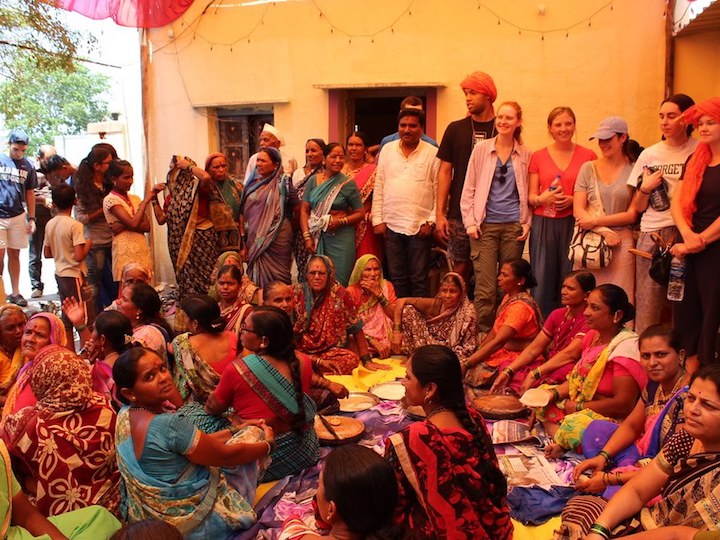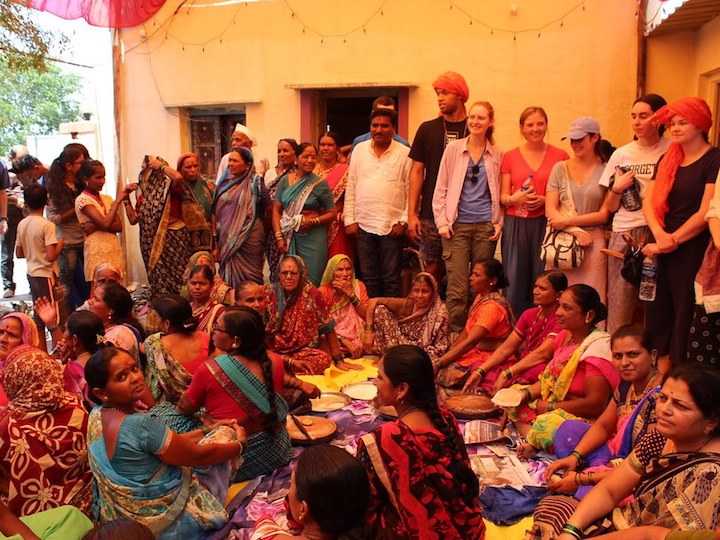Participating students were members of the India Innovation Studio: Designing for Droughts course, which is a studio-based course taught through a multidisciplinary lens in Georgetown’s Walsh School of Foreign Service. During the past academic year, students in the class examined the political, social, and hydrological dimensions of drought in India.
Policy Meetings
The primary goal of the trip was to offer students enrolled in the class a chance to present their solutions and prototypes, designed over the course of the year, to relevant public and private partners in India, with the hope that pilots and policies might be implemented.
The students had the opportunity to sharpen their policy proposals in conversation with public policy students at St. Xavier’s College, Mumbai, and then pitch their ideas to Chief Minister of Maharashtra Devendra Fadnavis in his “war room” and to senior diplomats at the U.S. Consulate in Mumbai.
Student proposals, which included open data initiatives, indirect lending programs, priority sector lending and catastrophe bonds, and the establishment of communal greenhouses, took a holistic, multidisciplinary approach to water policy reform.
The Face of the Crisis
Students also got to meet with farmers and the NGOs supporting them in rural Ahmednagar. Interacting with the people living in rural villages was not only a highlight for the students, but a humbling experience. One participant reflected that “the most challenging [aspect of the trip] was accepting and understanding that our research was limited in the sense that we did not have a perception of the ground reality before producing our proposals.”
Students grappled with the question of how outside experts can best work with on-the-ground stakeholders in order to provide useful guidance and improve the livelihoods of people who face this environmental and political challenge every day.
From Theory to Practice
The trip, which gave students the opportunity to do a deep dive into the topics they had studied all year, was the culmination of the studio course and was led by Georgetown professors Dr. Irfan Nooruddin and Dr. Mark Giordano, along with visiting lecturer Ann Pendleton-Jullian and teaching assistant Nandini Mullaji. As students visited drought-ridden villages, worked with policymakers, and met with academics whose work they have read throughout the year, the course moved from the theoretical space to the experiential. Students witnessed the challenges facing their own proposals and came away with new ideas about how to more effectively engage with this complex issue.
The India Innovation Studio will continue in the fall 2017 semester, this time focusing on the issue of public health and sanitation in Mumbai.







